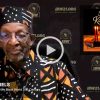Special to IBW
In a recent issue of The Nation, Editor and Publisher Katrina vanden Heuvel was effusive in her praise of Public Advocate Bill de Blasio’s plan to combat income inequality. She expounded on the Public Advocate’s speech in May at The New School in which he described New York as “a gilded city where the privileged few prosper and millions upon millions of New Yorkers struggle to just to keep their heads above water.”
That de Blasio has taken a firm and decisive stance on the problem of income inequality is commendable, but it should be noted that he is not alone on this critical disparity. Almost a year ago this month, City Comptroller John Liu, and he too now like de Blasio is a New York City mayoral contender, addressed this issue in a report that disclosed much of the same disparity and inequality at the crux of de Blasio’s speech.
“Such a wide income gap has financial consequences for the City,” Liu said. “Income inequality can weaken or destabilize the local tax base, reinforce patterns of racial and economic segregation, and undermine the vibrant social, cultural, and economic mix that is the foundation of New York City’s identity. It also threatens the very fragile economic recovery we are now experiencing.”
De Blasio, citing figures from the Fiscal Policy Institute, said that “the top 1 percent of New York City’s wage earners took in nearly 39 percent of the wealth.” Liu, basing his numbers on his advisory team, noted that the city’s “tax filers in the top 1 percent accounted for 32.5 percent of the City’s entire reported income in 2009.”
So, in effect, the two contenders are practically on the same page on this point. And each extends the point; Liu states that “income gap is further highlighted by the concentration of income among the very wealthiest. The most affluent 15,000 New York City household (the top 0.5 percent of filers) took in 26.7 percent of the City’s income. The top 2,000 households (the top 0.05 percent of filers) accounted for 18.0 percent of all income reported in the City.”
Rather than resorting to entirely to percentages, de Blasio uses a comparison drawn from a recent article in The New Yorker: “…If the borough of Manhattan were a country, the income gap between the richest 20 percent and the poorest 20 percent would be equal to that in countries including Sierra Leone, Namibia, and Lesotho,” all impoverished nations in Africa.
In his speech at The New School, de Blasio declared that “a New York City that continues the economic and educational policies of the last decade cannot—and will not—be a city of neighborhoods where middle-class families can live, work, and raise their children. Without a dramatic change in direction—an economic policy that combats inequality and rebuilds our middle class—generations to come will see New York as little more than a playground for the rich.”
Liu echoed these sentiments, insisting that “We must not repeat the pattern of the last decade when a few gathered enormous wealth, while the vast majority of New York families were left behind or saw very modest gains.”
Vanden Heuvel believes that de Blasio has thus far put forth the most “substantive proposal to raise taxes on the wealthy back to the levels the city set after 9/11,” but in many respects he merely restates some of the same ideas Liu has promoted for more than a year.
The two candidates are almost equal when it comes to income inequality but the choice is yours. Who’s it going to be?














